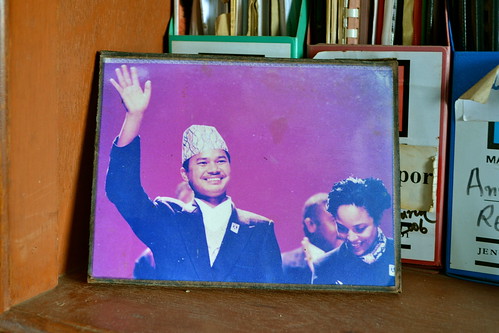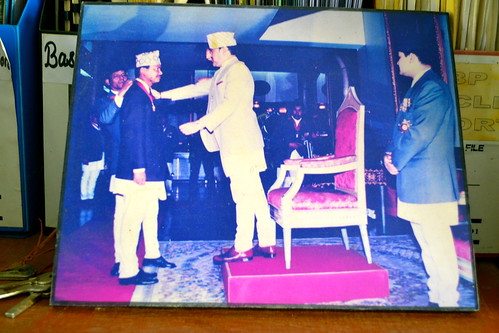Any girl of Tharu origin, who lives in another family’s house, either employed as a servant or there by choice and receiving any sort of allowance, is considered a kamlari. Kamlari practice was abolished in 2000 and under this law perpetrators of kamlari practice are technically supposed to be “prosecuted”. But, in the past 13 years there have barely been any records of prosecutions.
Once this law was enacted Nepal’s government took action to rescue as many kamlari girls as possible, many NGO’s were also involved in this process including Backward Society Education (BASE). During that year many perpetrators were identified, some of them threatened to employ another kamlari. Ms. Rashmi Pande, child rights officer of the Dang district, says that in order to ensure that these employers do not commit this crime again they were threatened by police officials, “The Superintendent Police (SP) and Chief District Officer (CDO) accompanied us during the raids, they made sure to warn these employers of the punishments and fined them 3,000 NRs.” They were apparently only fined 3,000 NRs. of the 25,000 NRs. because they would not be able to pay such a grand fine. But, was this enough to scare them? “No, although kamlari practice has been abolished and many kamlari’s are free in these regions we still see some cases here and there. It’s really hard to tell if these girls are working as kamlari’s because the girls are there by choice and their work is hidden. But, these laws have ensued the safety of the Tharu girls who are now free from abuse” , says Ms. Pande.
BASE, which is less of an organization and more a movement, was started by Mr. Dilli Chaudhary, a Tharu himself, who was very passionate about educating his Tharu sisters. He started by organizing community gatherings to raise funds and to establish a platform where issues within the community could be raised. During the pilot phase of this movement Mr. Chaudhary, at the age of 17, gained national support from Tharu’s throughout the country who helped him become aware of the issue of kamlari practice. From then on BASE focused primarily on getting freedom for the kamlari’s. Through this movement they gained international recognition. The king was impressed with Mr. Chaudhary’s work and awarded him the Suprawal Gorkha Dakshain Bahu Teshro award. Finally, in 2000 Kamlari practice was abolished. BASE then established 8 district offices within the far western and mid western regions of Nepal reaching out to the Tharu population of Kanchanpur, Kailali, Bardia, Banke, Dang, Surket, Rukum and Salyan.
For 10 years, after the Nepal government recognized Kamlari rights, BASE started forming Child Friendly Villages (CFV) throughout the western region of Nepal. The goal of these CFV’s were to protect all children, not only kamlari’s, from bonded labor and to create education friendly communities within these villages. Ten years later, however, it became apparent that the law that freed kamlari’s was not enough to help empower the Tharu community. Once freed the kamlari’s did return home, but now they had no source of income nor enough education to move forward. The law had instead created other problems. There were also cases of girls who returned working as domestic servants. To help alleviate this BASE launched rebuilding programs in areas mostly populated by the Tharu’s.
Today, BASE has 23 programs operating within the districts stated above. Working along the lines of the 10 point agreement announced by the Nepal government in June 2013, these programs focus on empowering freed kamlari’s by utilizing the resources found in their own villages. Funded by international donors such as DFID, World Education, Room to Read, Anit- Slavery International and more BASE is operating programs related to education, child and women rights, income generation and management training and vocational training for all freed kamlari’s. In my coming blogs I will talk more in depth about the specific programs running in 5 of the districts that we ventured out to as well as some details of the 10 point agreement regarding kamlari empowerment recently declared by the government of Nepal.
Sujita ✌
Posted By Sujita Basnet
Posted Jul 29th, 2013



